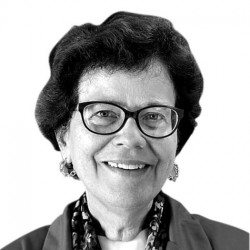An Investment during ‘Tough Times’
Chancellor’s undergraduate initiative gains support from board of regents.

The recently approved initiative will help crowded courses such as the introductory biology sequence.
As students battled spring fever this year, the campus community was drawn into extensive conversations about the Madison Initiative for Undergraduates. First proposed in March by Chancellor Biddy Martin PhD’85, the plan triggered talk in more than 140 campus meetings, Wisconsin Alumni Association-sponsored cookie giveaways, and spirited discussions.
The initiative, which, Martin says, “will ensure that our quality remains at the top and our students’ degrees retain their value,” won enthusiastic approval by the board of regents in early May. It calls for a supplemental UW-Madison tuition charge that grows by $250 a year for the next four years for in-state students, to an extra $1,000 by 2012–13. For non-residents, it grows by $750 a year, to an extra $3,000. Students who have demonstrated need and whose families earn $80,000 or less will receive grants to offset the additional tuition charge.
Regent Thomas Loftus MA’72 congratulated Martin on a “magnificent political and public campaign” to explain the need for the initiative. “We’re making an investment here — in tough times,” he added.
The additional funding will add more teachers in highly sought courses and majors, helping to eliminate course bottlenecks in areas such as economics, chemistry, biology, and Spanish. Funds also have been designated to improve critical student support services, such as career and academic advising, peer mentoring, and first-year interest groups.
Finally, the initiative, which was backed by the student government, will significantly increase need-based financial aid. The university will equal or exceed that revenue through a campaign to increase private support.
“Our commitment to quality and affordability will keep us in the bottom half of the Big Ten in tuition, even after the initiative is fully implemented,” Martin says.
Published in the Summer 2009 issue



Comments
No comments posted yet.